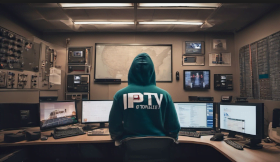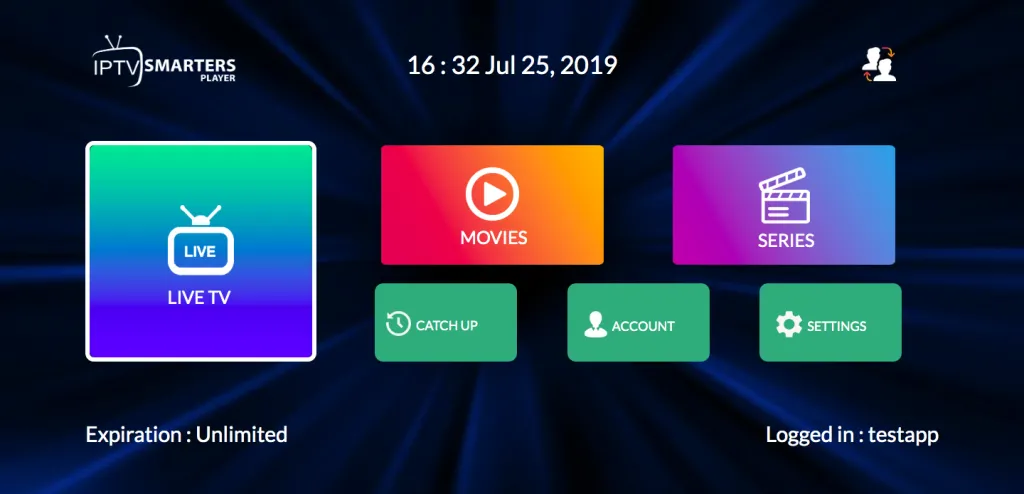
Home > Anti-Piracy > Site Blocking >
The company tasked with running Piracy Shield, Italy’s controversial IPTV-blocking system, is looking for a new recruit. The successful candidate will spend weekdays, plus an hour during most weekends, monitoring pirate streams and then taking them down. Surprisingly, the job requires no experience and no in-depth skills, although knowing what an IP address does will be seen as a positive.
 For less demanding pirates, a free movie, TV show, or live stream amounts to nothing more than the base media. In common with users of legal platforms, how that content made it to their screens is mostly of no concern.
For less demanding pirates, a free movie, TV show, or live stream amounts to nothing more than the base media. In common with users of legal platforms, how that content made it to their screens is mostly of no concern.
Yet if ‘How It’s Made’ had an episode revealing what goes on behind the scenes to keep sites online, in the face of constant efforts to shut them down, that might be an eye-opener.
In some respects setting up a site is easier today than ever before. On the downside, pirates routinely expect more; some have become openly aggressive critics, treating pirate sites no differently than they would an underperforming retailer or airline. It’s not unusual to hear comments suggesting they will vote with their feet (but not necessarily with their wallets) should standards and overall quality fall below acceptable levels.
The fact that behind the scenes anti-piracy companies are using all available tools, to make running a site as unrewarding, frustrating, and oftentimes as unprofitable as possible, means almost nothing to the general masses. At least until everything suddenly stops working, most commonly due to some kind of blocking. At that point, nothing is more important.
Really? Haven’t these people got anything better to do? ™ (some pirates, every week, since 1999)
Getting Paid to Watch Pirate Streams At Work?
A job listing that appeared on LinkedIn and several other sites this week offers a glimpse into pirate life from the opposing direction. The potential employer is listed as ‘Legal Forensic Tech’ which under the circumstances is probably a reference to SP Tech, the company tasked with running Italy’s Piracy Shield blocking system.
The position of ‘Super Junior Developer’ will see the successful candidate join the team to “continue the fight” against IPTV providers and web-based streaming services, offering pirated Serie A and Serie B football matches.
“During the week, [Super Junior] will be responsible for monitoring pirate streaming networks, and during the matches on weekends (3/4 weekends per month required, for a total of one hour per day, not for the whole weekend), to take them down using Piracy Shield,” the listing explains.
Getting paid to watch pirate networks all week might sound like easy money, but the importance of monitoring streams when matches aren’t being aired shouldn’t underestimated. It’s during these periods that most pirate services and their servers are logged as suppliers of infringing content and therefore subject to blocking measures.
There’s also the not insignificant task of identifying services that were previously blocked but due to circumvention, need to be blocked again.
No Special Skills or Experience Needed
There’s no question this is an important job, but information in the listing doesn’t always seem to reflect that.
The position pays a gross annual salary (known as RAL) of €24,000 (~$26,000), considerably less than the national average of €32,500. It’s also offered on a so-called co.co.co. basis, meaning that the successful candidate won’t be considered a full employee or even self-employed, but will get to decide when work gets done.
Also of note is the employer’s emphasis on the level of experience required; specifically, it’s fine if the applicant has none whatsoever. Then, to a background of some serious blocking blunders involving Cloudflare earlier this year, there’s the matter of matching the applicant’s skill set to the expectations of their potential employer.

“We are ready and willing to teach everything there is to know about our world, all we need is someone with the grit and passion,” the listing adds.
“This experience is preparatory to becoming part of the development team of our products that automate these projects. The stack we work in is mainly Golang, Python and React, on which we will train you.”
100s of Millions At Stake vs. Piracy Shield’s Pittance?
The listing confirms that the specific project being worked on is anti-piracy software for the football league, although Piracy Shield gets a specific mention elsewhere. As a result, the company works closely with DAZN, Sky, and others involved in football match broadcasting.
“We are a very small team, very close-knit and very helpful to each other,” the listing notes, reporting a two-member ops team, two junior staff, and a coordinator.
At the head of the company there’s a CEO and two “super-seniors.” One is a forensics expert, investigator, and an expert witness. The other “deals with the development part in Go and is a former pirate.”
It’s often claimed that pirates make huge sums of money but, in the end, being a pirate doesn’t pay. Hopefully that isn’t the case here, not least since working on Piracy Shield is just part of the company’s overall business.
Interestingly, relying solely on the revenue generated by the Piracy Shield contract might not even be sustainable.
For the “adapative and evolutionary maintenance services of the Piracy Shield Platform” for a period of 12 months ending December 2024, SP TECH S.R.L. will receive roughly the same amount of money Juventus pays Dušan Vlahović for a single day’s work.
The Piracy Shield job listing can be found here

